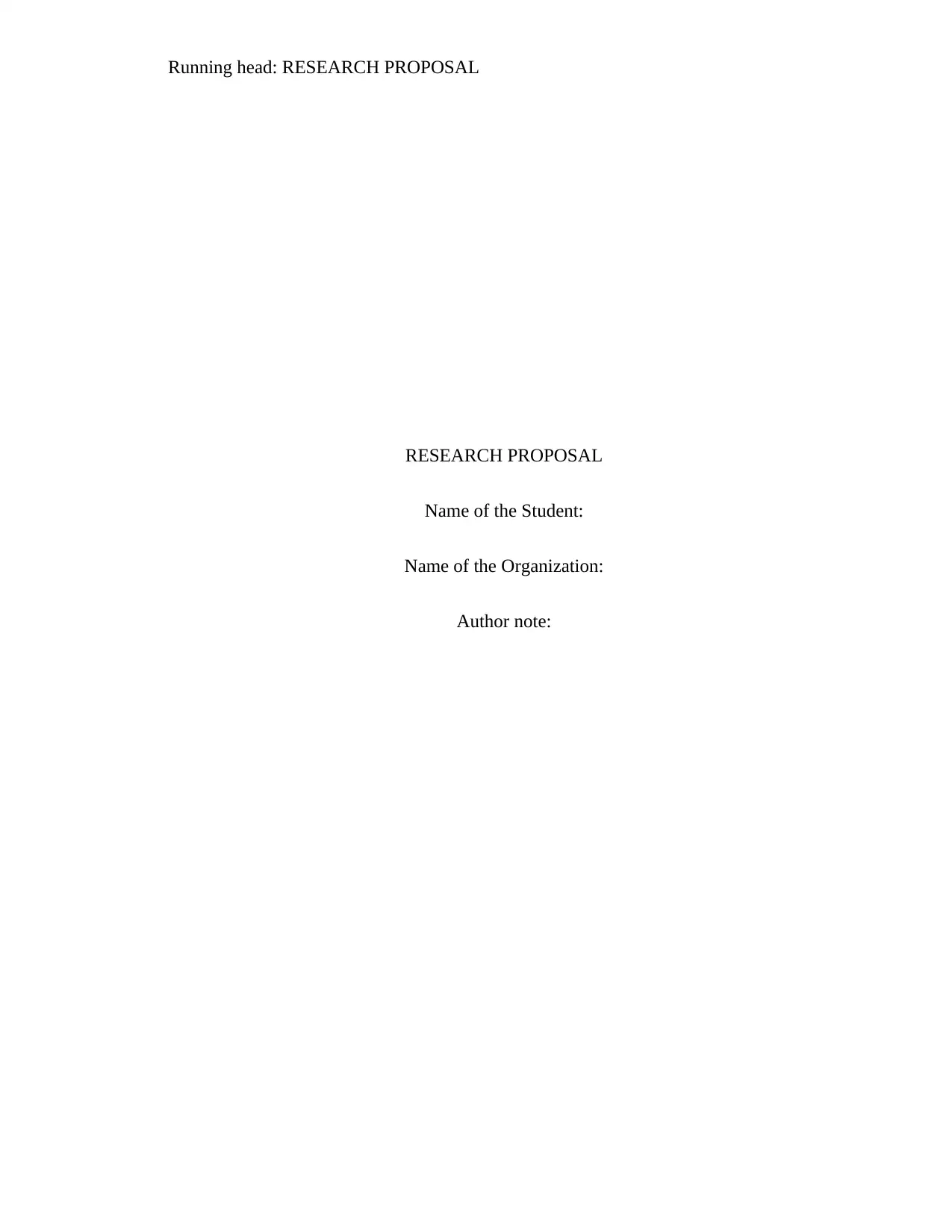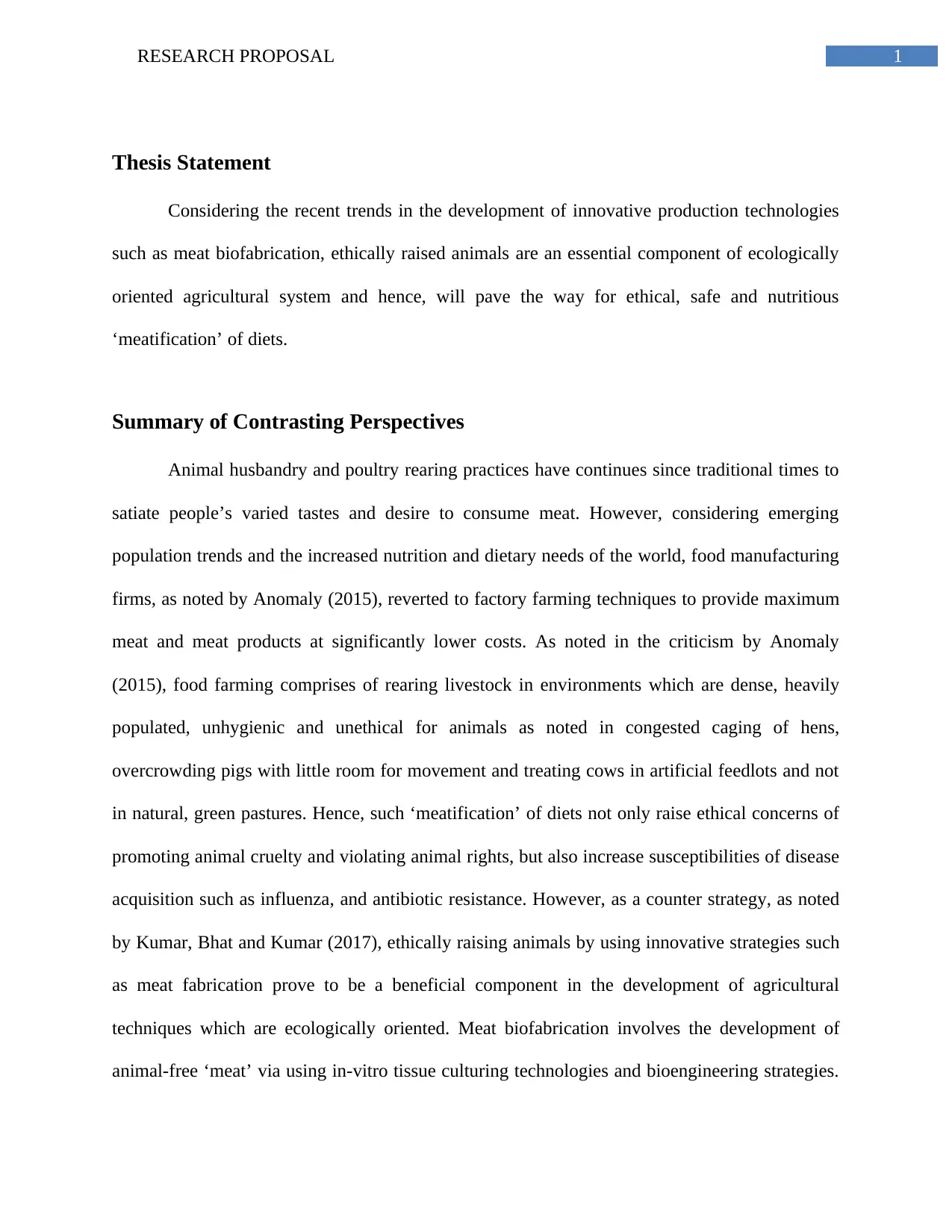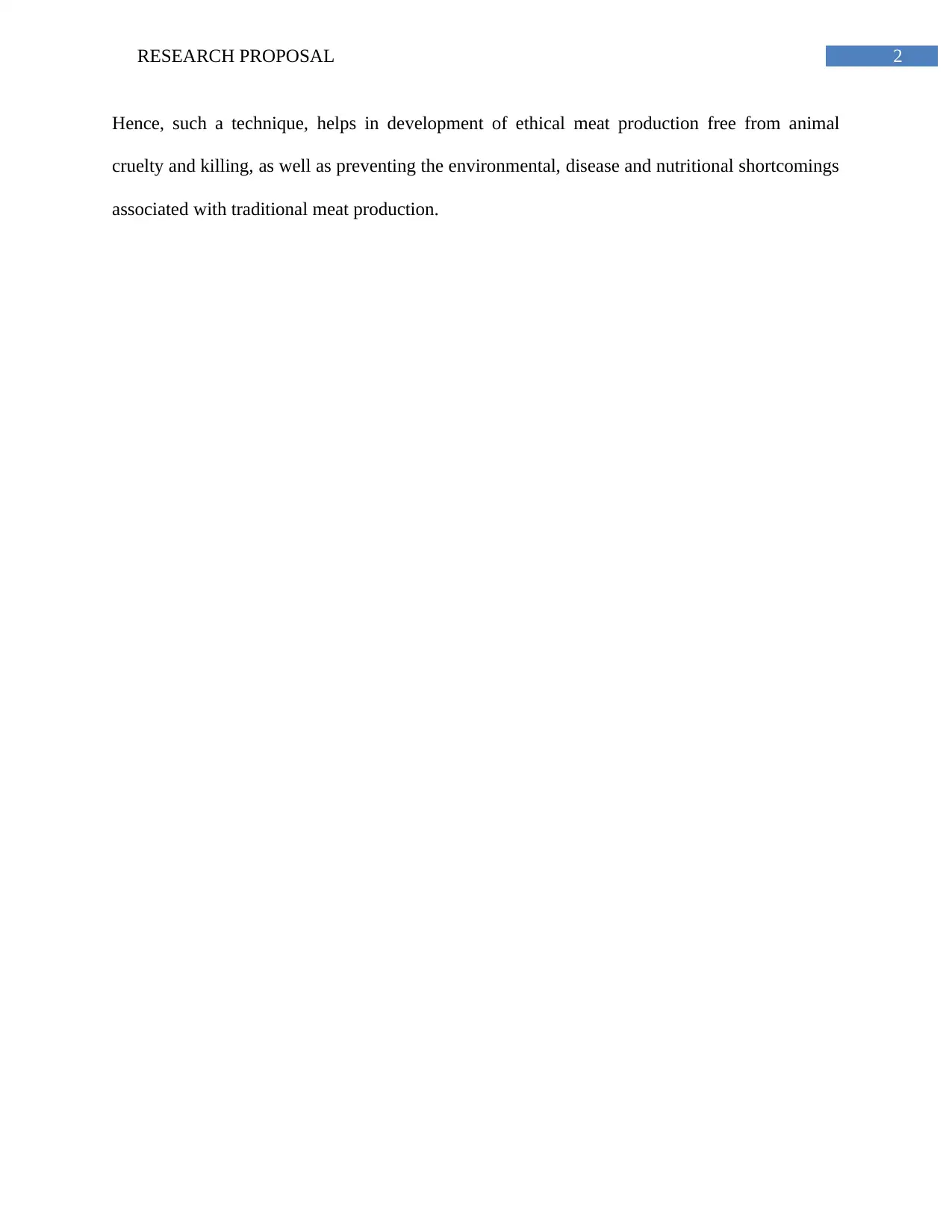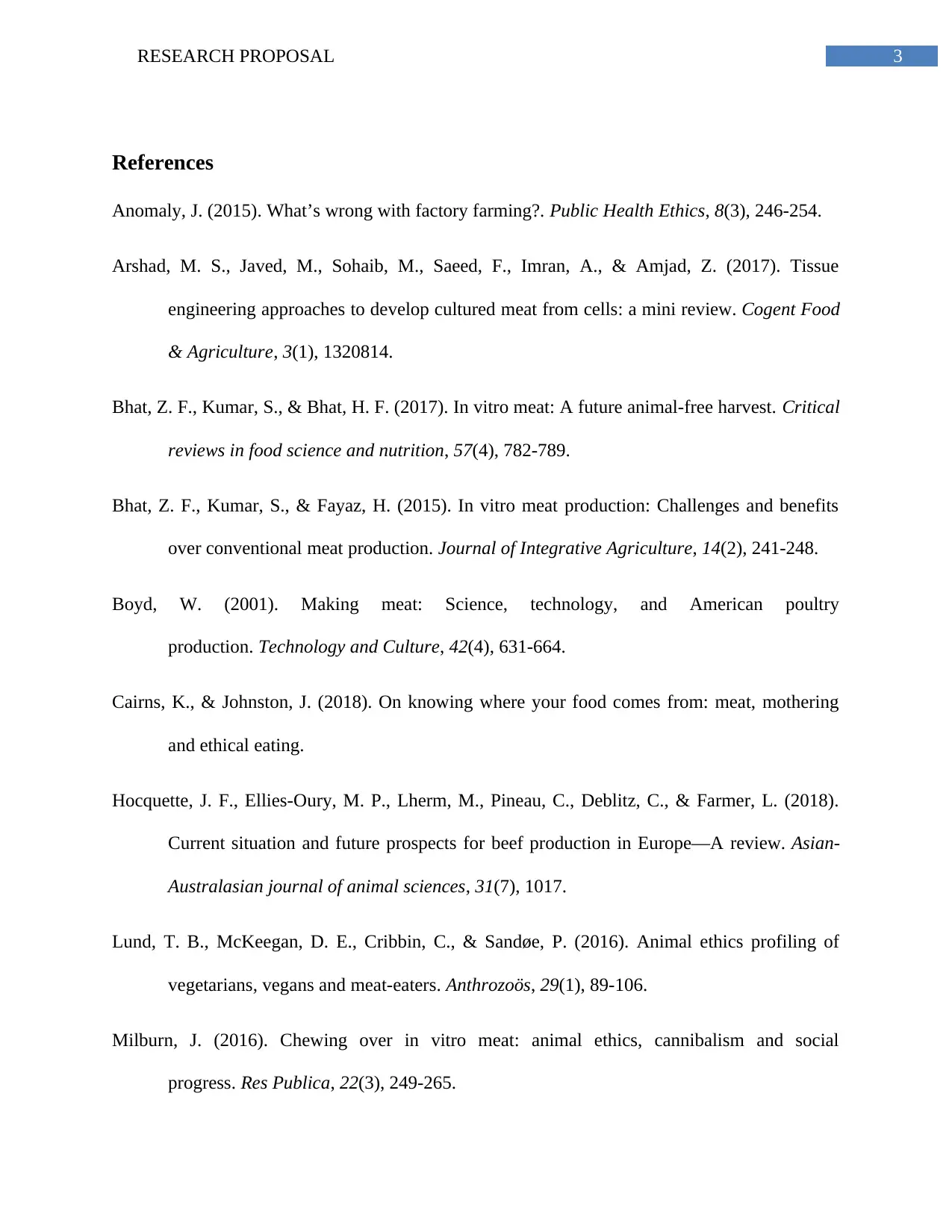Ethical Meat Production: Research Proposal on Biofabrication
VerifiedAdded on 2023/04/24
|4
|708
|58
Project
AI Summary
This research proposal explores the ethical dimensions of modern meat production and investigates the potential of meat biofabrication as a more sustainable and humane alternative to traditional factory farming. The proposal begins by outlining the contrasting perspectives on animal husbandry, highlighting the ethical concerns associated with intensive farming practices, including animal cruelty, disease susceptibility, and environmental impact. It then proposes meat biofabrication, an innovative approach involving in-vitro tissue culturing and bioengineering, as a solution to these challenges. The proposal emphasizes the benefits of this technology, including the elimination of animal cruelty, reduced environmental impact, and enhanced nutritional value. The research aims to analyze the viability and implications of biofabrication within the context of ecologically oriented agricultural systems, ultimately paving the way for ethical, safe, and nutritious meat consumption. The proposal includes a literature review of relevant research, and provides a strong thesis statement on the importance of ethically raised animals and the role of innovative technologies like meat biofabrication in the evolution of sustainable food systems.
1 out of 4






![[object Object]](/_next/static/media/star-bottom.7253800d.svg)